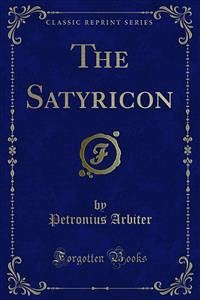We have nothing to fear from any Charge on the Defect of his Wit, and the Purity of his Stile, his Fame for that is too well establish'd all Europe over, and his Party every where too numerous to apprehend an Attaque from that side, for I may venture to assert, that Petronius is not much less admir'd now, than he was in ancient Rome; for our Age, by an admirable circulation of Temper, has very much of that of the time in which our Author liv'd, and of which he has left us so agreeable a Draught.





